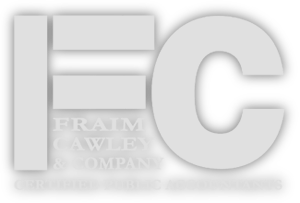“I try not to kid myself. You know, I don’t mind romancing someone else, but to fool yourself is pretty devastating and dangerous.” – Bill Veeck
Hermann Göring was by any measure a horrible human being. During the Second World War he was the second in command of the Nazi Party, the architect of much of the structure of Hitler’s Germany, and would have been the successor to Hitler. A truly terrible man.
A minor bit of trivia is that he was also an avid collector of art. And his favorite painter was the Dutch master Vermeer. Apparently Hitler had several works by the artist and Göring desperately wanted one for himself. (“Adolf has three. I want one! All the cool kids are getting them.”) So in 1942 he finally purchased one of Vermeer’s paintings from Dutch art dealer Han van Meegren for the modern day equivalent of about $7M.
When the Germans lost WWII, Göring was arrested and all of his assets were seized. Additionally, the art dealer van Meegren was arrested and charged with treason for aiding and abetting an enemy via the sale. Faced with a possible death sentence, van Meegren made a confession. The painting was not a real Vermeer – it was a forgery he himself had created. The charges were dropped and van Meegren became a folk hero in Holland for having pulled one over on the Nazi bigwig.
My favorite part of the story (and the reason I am relating it today) is Göring’s reaction when he found out his beloved painting was a fake. One account states that upon hearing the news the Nazi commander “looked as if for the first time he had discovered there was evil in the world.” How spectacularly ironic is that? This evil man who had been responsible (directly and indirectly) for unspeakable atrocities finally becomes shaken…by a deception related to his favorite painter.
While it is nearly certain that none of us could become as far removed from reality as Göring was, our perspective regarding life, priorities, and even matters of finance and business can easily become skewed. Spending too much time with like-minded people or without any outside advisors at all can cause us to become mentally entrenched.
I think this might be even more of a risk for those of us who own our own businesses. I absolutely love running my own firm – in no small part because of the level of control I have. All successes and failures are mine alone and everything I do has a direct correlation to how the business performs. Additionally (and this is not a minor perk) I do not have to answer to a boss.
One of most people’s least favorite parts of corporate America is dealing with their boss and company bureaucracy. Being freed of red tape and layers of approval processes is amazing and is a positive experience in many instances. As our own bosses we are able to make company decisions immediately and decisively without having to convince a less informed individual (i.e. the ‘idiot boss” everyone has had at one point or another). But this is not without some danger.
We all like ourselves. We usually think we’re pretty smart guys and gals. So of course we are going to think our decisions are the right ones. Especially without disagreeing co-workers, bosses overseeing our work, or really any dissenting voices – it can become very easy for us to listen and view our own opinions as gospel. (We’d could never – even for a moment – be the “idiot boss”, right?) To an extent, that confidence is needed. If we constantly second guess ourselves we will never be successful entrepreneurs (a phenomenon sometimes called “paralysis by analysis”). But blindly following one course without taking a step back to objectively analyze our business is a dangerous course. Hermann Göring was one of the most extreme examples of this.
We all need outside advisors and opinions to make sure we continue on the right course. People who are not there to make us happy or tickle our ears, but instead can objectively analyze how things are being run. And as this is my blog I get to say this: I of course consider myself to be a great independent advisor regarding business strategy, taxes, and business accounting.
One of my favorite things to do with clients (and one that often makes the biggest impact on the success of their companies) is to analyze their businesses and come up with strategies they can implement to make their businesses even better. Sometimes it is limited to tax planning, more often it is related to the entire business (taxes, accounting, general operations, and even marketing). This goes beyond what most CPAs are willing and able to do (those with a “taxes only” perspective). As I’ve opined before, sometimes the most advantageous strategies from a short-term tax standpoint can be bad for the business in the long run.
If you’d like to sit down and discuss your business or unique situation contact me so we can schedule your free consultation.
Any accounting, business, or tax advice contained in this communication, including attachments and enclosures, is not intended as a thorough, in-depth analysis of specific issues, nor a substitute for a formal opinion, nor is it sufficient to avoid tax-related penalties.




